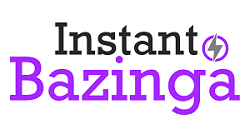Big data is becoming a more important part of doing business, but not everyone is a data scientist capable of grasping what a data point amidst a row of data might mean. As such, data visualization tools have become increasingly popular as of late, as they make it easier to spot correlations and aid in data analysis using visuals such as pie charts, histograms, bar charts, scatter plots, and even information graphics. This form of data presentation makes it much easier to interpret, analyze, and make informed decisions based on data, which is having a wide range of repercussions in the world at large.
Data visualization has been catching on for some time in the business sector, offering powerful insights and a way to harness big data in a much more visual way. That being said, just because data visualization isn’t the next hot thing doesn’t mean that there aren’t some areas where visualization is going to be more popular or useful in the coming year. If you’re curious about the different ways that data visualization may be used in the upcoming quarter, the following trends should give you a good idea about where information visualization best practices are heading in 2021 and beyond.
Customer data is becoming more and more precious.
When it comes to data visualization, customer data is one of the most common uses for statistical graphics and finding new insights. That being said, visual representation of certain groups is going to become even more important in 2021 thanks to new policies and features set forth by Apple. Apple is now giving consumers much more control over how their data is stored and used, meaning that if you have present data for any Apple iPhone users, that data may not be able to be used moving forward. As such, you need to have data visualization tools that allow for segmentation in addition to generating line charts and bar graphs from your spreadsheets, as it’s likely that comparisons between 2020 and 2021 are going to see some drop-offs solely because of Apple’s new move.
Integrated dashboards will be the new standard for data visualization.
One way to ensure that you’re getting the most out of your statistical graphics and visual analytics is to have an integrated dashboard that’s fueled by your raw data. If there are specific applications or tools that your employees use frequently, it’s critical that you have interactive ways to show this visual information. Heat maps, for example, are becoming more and more popular in email marketing software tools to illustrate where viewers are clicking in a given email campaign. This kind of information tells visual stories about how your users engage with and interact with your email campaigns, which can ultimately lead to new best practices. Just knowing a click rate for a certain button couldn’t give you this kind of insight, because the visual analytics offered by a graphic representation of data makes comparisons of placement, size, font, and color all the easier. Especially for gleaning information about how your customers read your emails on mobile devices, these sorts of insights can really help inform your style guide and how you approach building email campaigns, landing pages, and other customer-facing advertisements.
Business intelligence tools are constantly evolving, offering new features and capabilities that once could only be imagined. If you’re interested in learning more about how different infographics and visuals can help you better leverage large amounts of data in your business, data visualization tools are definitely worth looking into. By keeping up on the latest trends surrounding data visualization, you’ll also be better equipped to use these data sources in your day-to-day business operations.




